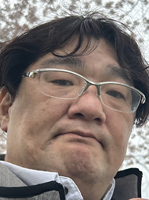What is responsible reporting on suicide? Who is responsible for it?” Tetsuya Shibui (Journalist)

September 1st was a “special day” where many children and students committed suicide (2015 edition of the “White Paper on Suicide Prevention”).
In the 42 years from 1972 to 2013, 131 people under the age of 18 committed suicide on September 1st. Based on this figure, NHK created the hashtag “#On the Night of August 31st” and broadcasts related programs almost every year.
In addition, September 10th is “World Suicide Prevention Day,” and the week from that day is designated as “Suicide Prevention Week” in Japan.
As a result, many media outlets report more on suicide after the 10th.
If you feel like “I want to die” or “I want to disappear,” people are urged to seek help, and counseling services are featured. However, most media outlets only list contact information, and the characteristics of the counseling services are unclear.
For example, in the 2017 Zama murder of nine men and women, people who tweeted “I want to die” on social media were targeted. As many young people are currently sending out SOS messages through social media communication, the Ministry of Health, Labor and Welfare started SNS counseling within the framework of suicide counseling, and it continues to this day. Many media outlets also introduce this SNS counseling.
SNS counseling is not provided by public institutions but by private organizations, so the characteristics of each organization are different. Are the people who respond to the counseling qualified or have experience as a person involved? If SNS other than LINE or email is used, it may be on its own website. The hours during which counseling is available may be 24 hours a day, or only at certain times on certain days of the week.
Even if you try to actively obtain information about counseling, the organizations may not make it public, or the data may be old. Ideally, the media should check properly, but there are almost no media outlets that report this information.
The World Health Organization (WHO) has issued the “Guidelines for Reporting on Suicide, 2023 Edition” (“Basic Knowledge Media Professionals Should Know to Promote Suicide Prevention, 2023 Edition” translated by the Center for Suicide Prevention Promotion).
The guidelines present “dos” and “don’ts,” and among the “dos,” it states that “information related to support services should be included at the end of articles and video news.” In fact, many media outlets do this.
In addition, it also states that “information and consultation services should be listed that are known to be of high quality.” However, I have never seen a report that mentions quality.
For example, you may have seen undercover reports of medical institutions, but similarly, I have never seen a similar report on consultation services. They simply list consultation services. This cannot be considered responsible suicide-related reporting.
I am also involved in organizations that provide SNS consultations, including suicide consultations, and hear about their internal affairs. In that sense, the author’s own articles will also be questioned.
※Translating Japanese articles into English with AI
